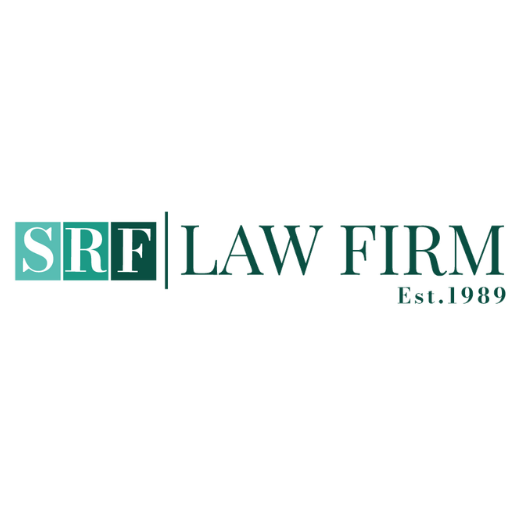Author: Felipe Yépez del Pozo Batallas
Author: Joaquín Guerra Villacís
Abstract
This paper examines why non-contractual liability of the State should be recognised in cases of misuse of the expropriation institution. First, key concepts relevant to the topic are defined. Then, the legal problem is posed, along with two perspectives focusing on two scenarios: compensation for confiscation of real property by the State and compensation for temporary limitations on property rights. Additionally, a joint analysis of Articles 321 and 323 of the Constitution is conducted to determine the non-contractual liability of the Ecuadorian State in the established context.
Keywords
Expropriation; confiscation; public utility; fair price; compensation; property rights; temporary property limitations; public sector; non-contractual liability
1. Introduction
According to Article 331.2 of the Organic Administrative Code, non-contractual liability of the State arises when a causal link is established between the qualified harm and the Administration’s actions. At first glance, it could be argued that the use of expropriation does not trigger non-contractual liability, given its constitutional recognition and the absence of evident qualified harm.
However, a closer examination suggests that non-contractual liability could arise in cases of improper use of expropriation. This is justified by several elements. First, harm to the individual is evident when their property rights are infringed, depriving them of the use, enjoyment, or free disposal of their property. Additionally, there is direct and objective State liability, as the expropriation measure, while seemingly legitimate, imposes a special burden on the affected party. Finally, there is a causal link between the unjust harm inflicted and the State’s actions.
The fundamental purpose of this analysis is to examine the grounds for imputing non-contractual liability to the State in cases of abuse of the expropriation institution and to outline pertinent procedures for determining and quantifying the resulting damages.
2. Legal Problem
The Constitution of the Republic of Ecuador, in Article 11.9, establishes the State’s duty to respect and ensure respect for the rights guaranteed therein.[1] Likewise, Article 321 recognises the right to property,[2] with the caveat that this right is subject to limitations arising from the public utility function, as set out in Article 323.[3] The latter article grants the State the power to declare the expropriation of property for reasons of public utility or social and national interest, subject to fair valuation, compensation, and payment as provided by law.[4]
Under this premise, the State may incur non-contractual liability when it abuses the expropriation institution and fails to meet the constitutional requirements for legally extinguishing an individual’s property rights. If the State, in declaring the expropriation of a property, fails to justify its public utility, determine the fair price correctly, or make the payment, it commits an illegitimate act that the individual should not be obliged to endure, thereby causing qualified harm that must be compensated. Ecuadorian legislation does not clearly establish how damages caused by illegal expropriation, whether permanent or temporary, should be compensated. This lack of clarity creates uncertainty regarding the protection of citizens’ rights affected by improper expropriation.
2.1 Compensation for Violation of Property Rights Due to Confiscation by the Administration
As mentioned in the legal problem, when the State fails to meet the prerequisites for declaring the expropriation of an individual’s property, it constitutes confiscation, imposing a burden on the individual that they are not required to bear. For this reason, the individual has the right to be compensated for the patrimonial damage caused by the Administration’s violation of property rights without just justification. This section aims to analyse the compensations arising from the deprivation of property rights by the State, using the Salvador Chiriboga v. Ecuador case as an illustrative example.
2.1.2 Case of Salvador Chiriboga v. Ecuador
The case of Salvador Chiriboga v. Ecuador exemplifies the issues discussed in this section. Briefly, the Salvador Chiriboga siblings inherited a 60-hectare plot of land from their father, which was expropriated in 1991 by the Municipality of Quito without a judicial resolution determining the definitive value of the property or issuing an order for compensation payment. For over 15 years, the siblings were unable to exercise their property rights, particularly the rights of use and enjoyment.
Witnesses in similar situations, such as José Luis Paredes Sánchez and Margarita Beatriz, testified that their properties were expropriated without receiving any compensation.
The siblings’ representatives argued during the proceedings that “the absence of prior compensation, as well as procedural defects, vitiated the legitimacy of the public utility declaration and transformed the expropriation into confiscation.”[5] The court ruled that any restriction on rights must be proportional to the interests of justice and strictly aligned with that goal, interfering minimally with the effective exercise of a right. Furthermore, the court emphasised that the deprivation of private property rights in cases of expropriation must fully comply with legal requirements and demands.
Finally, the court declared that the State had indeed violated the right to private property and ordered the determination and payment of fair compensation for the expropriated property.
This ruling demonstrates that under no circumstances may the State infringe upon an individual’s property rights without an effective determination of expropriation, and that the affected party has the right to claim damages to redress the violation of their rights.
2.2 Compensation for Temporary Limitations on Property Rights by the Public Sector
The premise also suggests that there may be cases where exceptions to the absoluteness of property rights arise. Temporary limitations on property rights may exist in the public and private sectors, stemming from various sources such as municipal regulations, land-use manuals, and contracts. Such limitations can significantly affect the owner’s ability to use, enjoy, or dispose of the property.
The discussion highlights the complexity and necessity of fairness in applying such limitations. While these limitations may be required in the public interest, it is crucial to ensure fair compensation for affected property owners. Differentiating between limitations and constraints, as well as their subdivisions proposed by various authors, underscores the importance of addressing each case with proportionality, justification, and legal validity. Ultimately, a balance must be struck between the common good and individual rights, ensuring that temporary limitations on property rights are implemented justly and with proper compensation when necessary.
3. Conclusions
In conclusion, the State incurs non-contractual liability in cases of confiscation or abuse of the expropriation institution. Failure to comply with any of the three constitutional requirements for expropriation constitutes an illegitimate appropriation of property, causing harm that the individual should not be required to endure due to the Administration’s unlawful actions.
The forced deprivation of property rights, including use, enjoyment, and disposal, warrants compensation for qualified harm, regardless of intent or fault, focusing solely on the action itself. This analysis has shown that the State is obliged to compensate for damages, including actual damages and lost profits, under specific circumstances arising from property loss, relocation costs, and even impacts on the victim’s patrimony. These damages must adhere to the principles of unjust enrichment and legal limitations.
Bibliography
- Agustín Gordillo “Limitaciones a la Propiedad”. (Argentina: Libro de Administración Pública Editorial 11, 2017). P 370.
- Ana María Monayar, “Declaración de Utilidad Pública y Expropiación”. Argentina, 1977.
- Boris Lomoto Cepeda. “El derecho al justo precio en los procesos de expropiación en la Legislación ecuatoriana.” (Quito; Universidad Central del Ecuador, 2018).
- Caso Salvador Chiriboga vs Ecuador. Sentencia Corte Interamericana de Derechos Humanos de 6 de mayo de 2008.
- Código civil de la Republica del Ecuador R. O. 46 del 24 de junio de 2005.
- Constitución de la República del Ecuador R.O 449 del 20 de octubre del 2008
- Fernando G. Falla “El derecho a indemnización por limitaciones o vinculaciones impuestas a la propiedad privada”. (España: Revista de Administración Pública,1976).
- Guillermo Cabanelas, “Diccionario Enciclopédico de Derecho Usual” (Buenos Aires; Editorial Heliastea,1730).
- Jhon Granados y Enrique Pozo, “La vulneración del derecho de propiedad privada y seguridad jurídica con la declaratoria de utilidad pública o interés social con fines de expropiación” (Polo del Conocimiento; 2021).
- Juan Larrea Holguín, “Manual elemental de Derecho Civil del Ecuador” (Quito; Corporación de Estudios y Publicaciones, 2007).
- Luis R. Parraguez Ruiz “Régimen Jurídico de los Bienes”. (Quito: Cevallos Editora Jurídica: Colegio de Jurisprudencia. Universidad San Francisco de Quito,2020).
- Pedro S. Fernández El Derecho al Justo Precio en el Proceso Judicial de Expropiacion”, (Cuenca, Universidad del Azuay, 2021.).
- Roberto Dromi, “Derecho administrativo (novena edición)” (Buenos Aires; Editorial de Ciencia y Cultura, 2001).
- Sentencia Nº 0152-2010 de la Ex Sala de Lo Civil, Mercantil y Familia de la Corte Nacional de Justicia, 2010
- Servicio de Gestión Inmobiliaria del Sector Público. “Manual de Proceso de Expropiacion de Bienes Inmuebles del Ecuador”, 2014.
[1] See art. 11.9 de la Constitución de la República del Ecuador R.O 449 del 20 de octubre del 2008
[2] See art. 321 de la Constitución de la República del Ecuador R.O 449 del 20 de octubre del 2008
[3] See art. 323 de la Constitución de la República del Ecuador R.O 449 del 20 de octubre del 2008
[4] See art. 323 de la Constitución de la República del Ecuador R.O 449 del 20 de octubre del 2008
[5] Caso Salvador Chiriboga vs Ecuador. Sentencia Corte Interamericana de Derechos Humanos de 6 de mayo de 2008, párrafo 52e Derechos Humanos de 6 de mayo de 2008, párrafo 52








